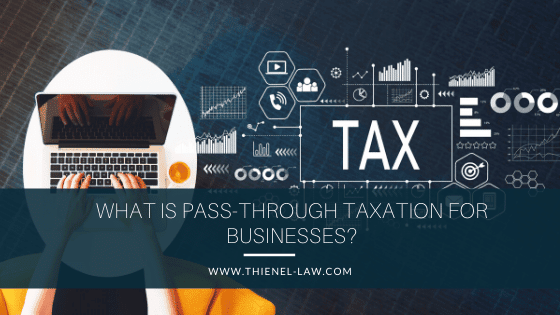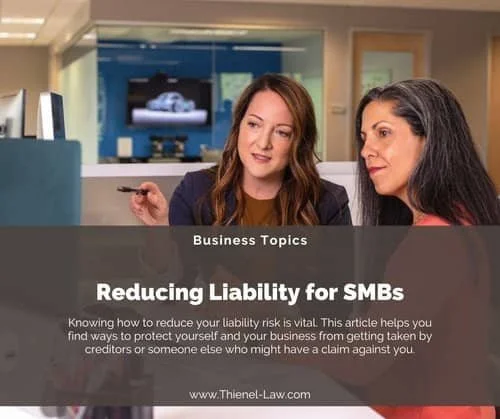What is Pass-Through Taxation for Businesses?
Pass-through taxation refers to how income from some businesses is taxed. Many businesses in the United States operate as pass-through business entities. A DC fractional general counsel can help you determine if a pass-through business entity is right for your company.
What is Pass-Through Taxation?
C-corporations are subject to double taxation. The corporation pays corporate income tax on its income on its corporate tax returns. That income is distributed to shareholders, who pay personal income taxes when they file their personal income tax returns. This process is called double taxation because the corporation and the shareholder are paying tax on the same income.
A pass-through business entity does not pay taxes on its income. The income “passes through” the business to the owner. The owner then reports the business income on his personal income tax return. The owner pays income taxes at his individual income tax rate. Pass-through taxation avoids double taxation of business income.
What Types of Business Entities are Pass-Through Entities?
Sole proprietorships are a common type of pass-through business entity. The owner reports business income and expenses on Schedule C of his individual tax return. The owner then pays taxes on the net income at his individual tax rate. Partnerships are also pass-through entities for tax purposes. Even though partnerships file partnership tax returns, the profits from the partnership are distributed to the partners and reported on their individual tax returns. Likewise, S-corporations must file corporate tax returns, but the income from the business passes through the business to the shareholders. The shareholders report the income on their individual tax returns.
Limited Liability Companies (LLCs) are not recognized by the Internal Revenue Service (IRS) as a tax entity. The IRS automatically treats a single-member LLC (one owner) as a sole proprietor for tax purposes. Multi-member LLCs are treated as partnerships for tax purposes. An LLC can choose to be taxed as a C-corporation, which would void its pass-through taxation status.
Recent Changes in Tax Laws Related to Pass-Through Business Entities
The Tax Cuts and Jobs Act (TCJA) significantly impacted pass-through income for many small business owners. The TCJA’s pass-through deduction allows many businesses to deduct up to 20 percent of their income before paying taxes. The change in the tax law can significantly reduce the tax liability for many business owners who operate pass-through business entities. There are rules and exceptions, including income thresholds at which the tax deduction begins to phase out.
Do You Need Assistance Forming a Business Entity? Consider a DC Fractional General Counsel
Choosing a business entity has numerous tax, legal, and operational consequences for you and your company. Understanding the business entity types and the pros and cons of each business entity are essential.
A DC fractional general counsel can review the business entities and discuss why a specific business entity is best for your company. Contact experienced business attorney Steve Thienel today. Assisted by an attorney, you can choose a business entity that creates the best taxation method for you while giving you the structure you need to operate your business and protect you from personal liability.
Related




